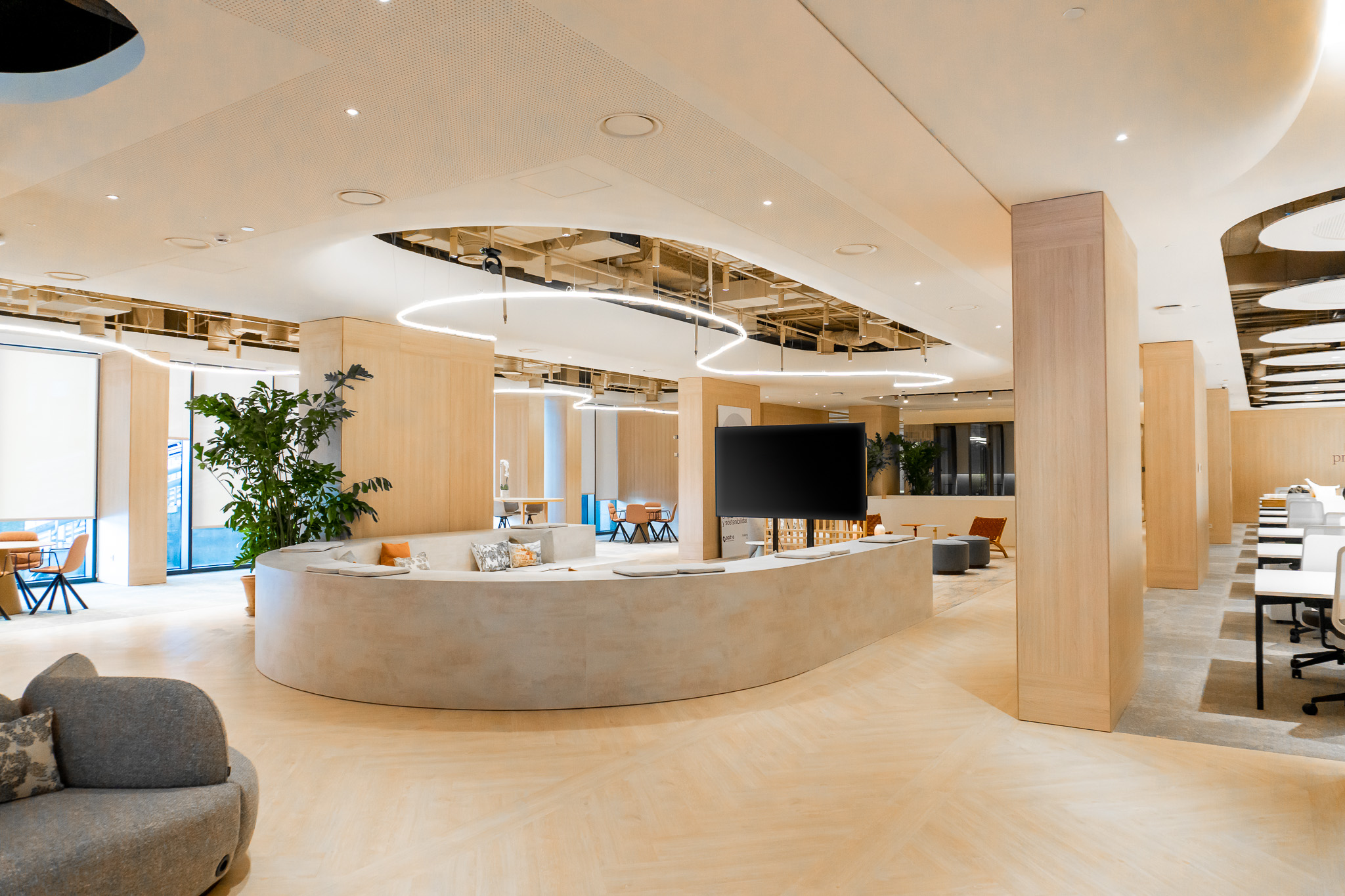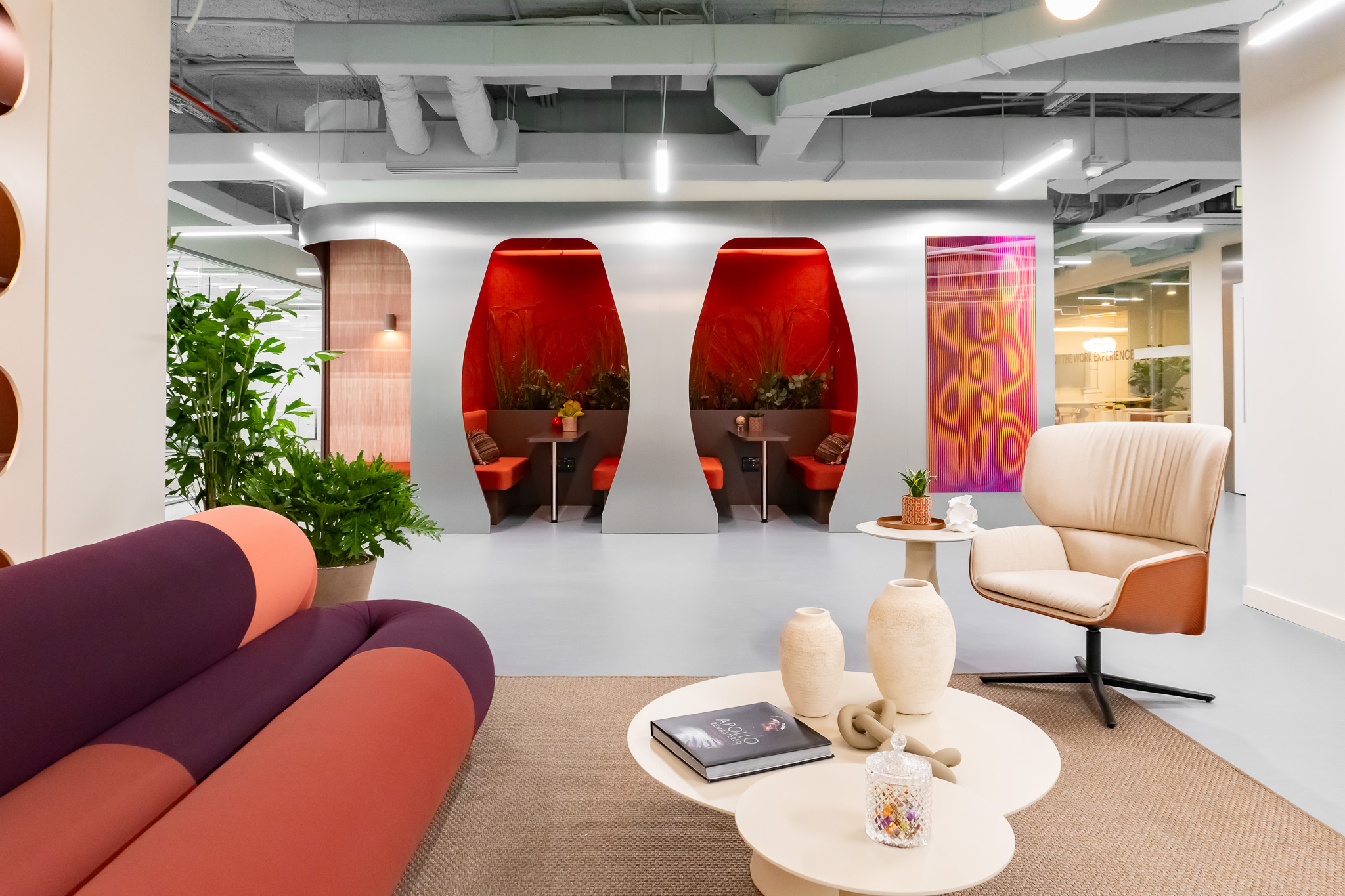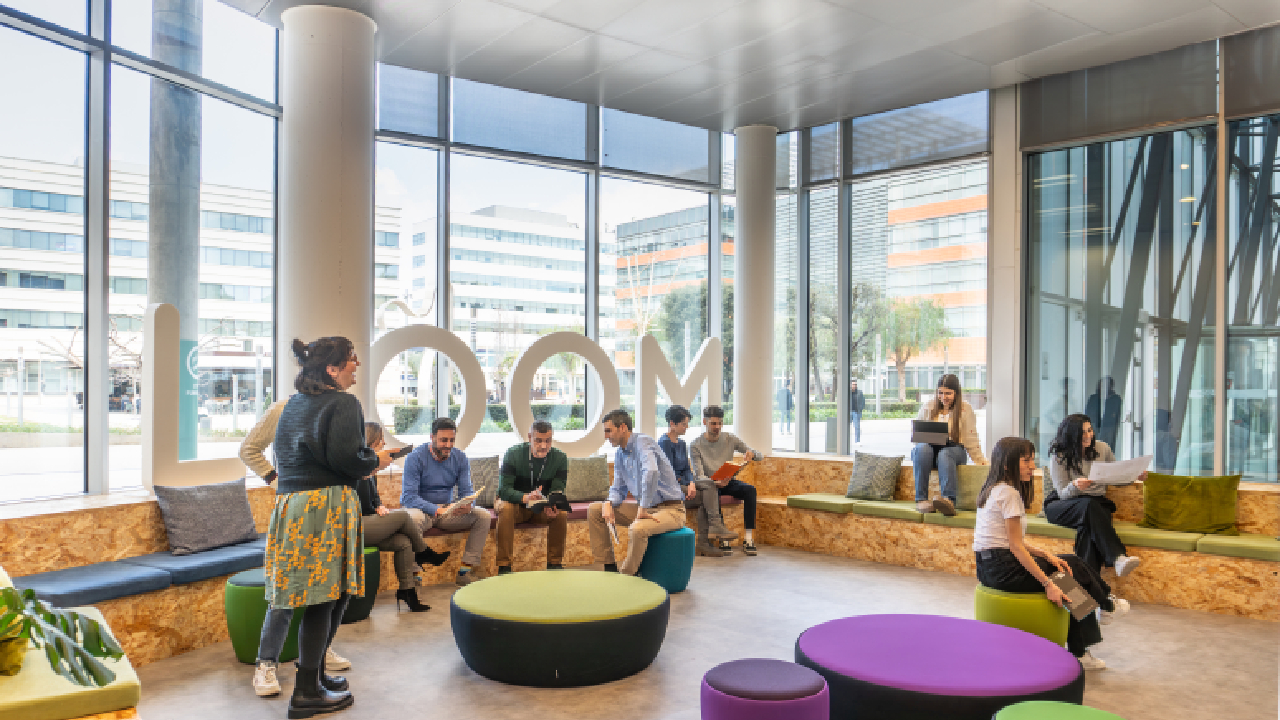In today’s era, where flexibility has become a key element in attracting talent, flexible work emerges as a key element for employee retention. Companies that adopt flexible policies not only adapt to changing work dynamics, but also experience a significant increase in the reduction of turnover in their teams. In this context, coworking is positioned as an essential tool to facilitate this transition to more flexible and satisfying work environments.

Encouraging work/life balance
Flexible work allows employees to balance their professional and personal responsibilities more effectively. By adopting policies that allow for flexible schedules, or coworking options, companies demonstrate a genuine commitment to the quality of life of their employees. This approach not only strengthens employee loyalty, but also contributes to a healthier and more balanced work environment.
Empowerment through workspace
Coworking offers an environment that empowers autonomy and creativity. Professionals have the freedom to choose where and how they work, which increases the feeling of empowerment. The ability to change scenery, collaborate with diverse professionals and access modern facilities contributes to a dynamic working environment that stimulates personal and professional growth. In one of our previous posts we explained how to build a culture of innovation.
Adaptability and business resilience
The ability to adapt to changing market circumstances is essential for business survival. Companies that embrace flexible work are better positioned to face unexpected challenges. Flexibility in work location ensures operational continuity, while the adoption of coworking spaces provides companies with a scalable and cost-effective solution to their physical space needs.
Promoting a culture of trust
Flexible work is based on mutual trust between employers and employees. By giving workers the freedom to manage their own time and workspace, companies send a powerful message of trust. This trust fosters a sense of belonging and commitment, two essential ingredients for retaining talent in a competitive labor market.
In short, flexible working, supported by the coworking environment, is not only a response to changing workforce demands, but also an effective strategy to increase talent retention. By providing flexibility, empowerment and a trust-centered work environment, companies can foster long-term sustainable growth with a team with lower turnover. In the new age of work, flexibility is not just an option, but an imperative to build strong companies with engaged employees.










